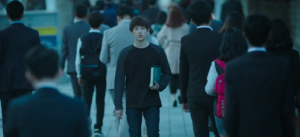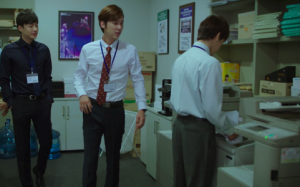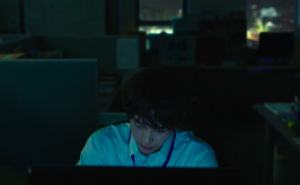Synopsis:
Mr. Park’s presence makes it hard for Sales Team Three and other employees to feel at ease in the workplace. Sales Team Three is concerned with Mr. Park’s lead in the Jordan used-car project, and finds out that Mr. Park has committed fraud for his personal gain. With the help of Geu-rae’s skills in baduk, he was able to provide evidence that allowed Mr. Park to get caught red handed. As a result, Mr. Park and one of One International’s crucial employees were forced to resign. With Chun Kwan-woong as Mr. Park’s replacement, Mr. Chun finds his likings towards his new team and is looking forward to the new challenges that will arise for them, including the revival of the Jordan project.


How well workers follow business ethics relies on how a company values it. In any company, business ethics is important in order to establish a moral image for the public (Cho 2009, 235). However, it is a contradicting idea since companies like One International will do anything they can to avoid a bad reputation, which can lead to corrupt undertakings. Thus, I will argue that Mr. Park’s unethical behaviour comes from the company’s lack of surveillance.
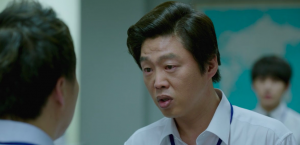
South Korea’s work “values of integrity, human relations and cooperation were positioned as the core factors for the ideal human type” (Cho 2009, 237). If someone in a team cannot agree to any of those values, the whole organization will fall. An individual like Mr. Park fails to value all those standards. Mr. Park’s lack of contributive work, his uneasiness towards his co-workers, and his abusive attitude towards Geu-rae has made him a hostile figure in Sales Team Three. One International only kept him because of the money he brought in for the company and that they failed to recognize his unethical behaviour.
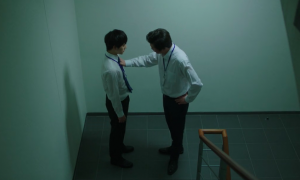

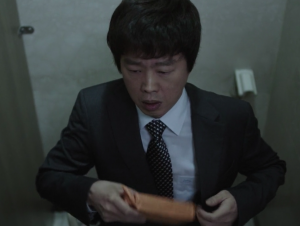
One evident case of Mr. Park’s inappropriacy is where Mr. Park is being unprofessional towards the female employees. Because “South Korean society is experiencing conflict and confusion regarding sexual ethics”, the drama takes Chief Park to be the predator who represents someone who creates an unsafe work environment (Hwang Yoo and Cho 2016, 899). Most women tend not to confront these issues to the company since it can lead to losses for the company and more troubles for the women who want to be treated professionally. Thus, Mr. Oh who is responsible for his team, including Mr. Park, is the only one at highest authority to handle the situation without it getting out of hand. Sadly, Mr. Oh can only do so much to dissolve the situation.

One of the significant plots in the story which also relates to business ethics is where Mr. Park is committing fraud from a subcontractor who is of the same blood as him. For the benefit of the company, Sales Team Three can keep quiet and let both the companies and Mr. Park win. However, “honesty and integrity [is] a core value for personal perfection and national development” (Cho 2009, 238). Sales Team Three cares about prevailing justice for the good of society, and in a situation like this, One International must cooperate and do what they can to make things right and to preserve their image through this scandal.
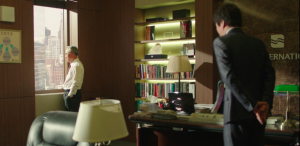
As long as a company has good relationships with its clients and contributes steady profits, it should have no troubles. However, as we can see through these two episodes, there has been a lot of complications within Sales Team Three and the company as a whole. Justice has prevailed, but at the expense of both the company and the upper positions of the company.
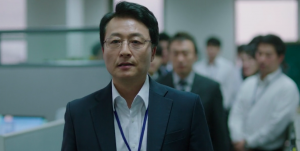
Questions:
Dong-shik explained to Geu-rae in episode 10 that “the senior manager and the director will suffer heavy career blows. The higher your rank, the heavier the blow” [time: 1:07:00-1:07:10]. Why would that be the case and do you think we should change that idea in order to produce an honest work environment where only the victim involved in unethical affairs will be punished?
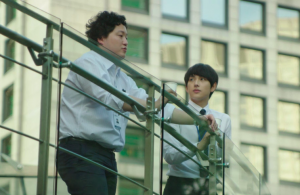
Do you think it was really a good idea for Sales Team Three to finish the Jordan project after this huge scandal? Without corruption, it could be the most beneficial project for the company, but there are always more projects out there, and Sales Team Three is already receiving bad looks from the other workers in the company. I personally thought it was not worth it, but I guess pursuing this project would make the plot line more interesting. What are your thoughts on it?
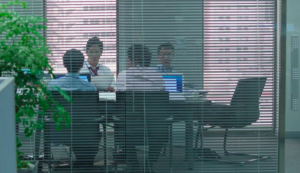
Photos are screenshots from the drama, no copyright infringement is intended.
Work Cited
Cho, Eunsang. “Work Values and Business Ethics in Korea.” Advances in Developing Human Resources 11, no. 2 (2009): 235-252.
Hwang, Kyung-Hye, Yang-Sook Yoo, and Ok-Hee Cho. “Sexual Discrimination, Attitudes Toward Sexual Health, and Consciousness of Biomedical Ethics in Korea.” Social Behavior and Personality: An International Journal 44, no. 6 (2016): 899-909.
Kim, Won-seok, dir. Misaeng. Number 3 Pictures, 2014. https://www.netflix.com/watch/80165505?trackId=200257858.
Kim, Won-seok, dir. Misaeng. Number 3 Pictures, 2014. https://www.netflix.com/watch/80165506?trackId=200257858.
